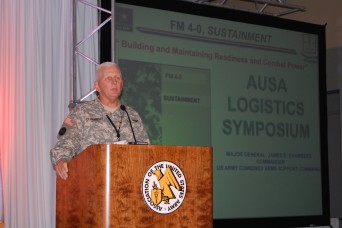
/13218427984_f729002abe_o-56a9b26c5f9b58b7d0fe292f.jpg)
However, I am still to finish MEPs so I have to pick an MOS. Have fun at the school house and if your instructor is SSG Martensen, tell him I said hi.So I am slated to go to basic after my college graduation in May. AIT Platoon Sergeants have a lot of work to do and a lot of Soldiers to counsel, but you will have a more direct impact on their view of NCOs. They will take in everything you give them like a sponge and hope for guidance and counseling along the way. They will look at you and your experience through a microscope. You will probably be the first NCO they'll have an actual conversation with and get to know. You have the advantage of real life experience and there will be a LOT of brand new Soldiers who will look to you for guidance and leadership. We need critical thinkers who can argue their point (with respect), and who are not going to agree with what is given to them. I'm not sure about your background, but the MI community is much different than most other places in the Army.

Use Skillport to take classes on Microsoft Word, PowerPoint and Excel if you are not already very proficient.Īnd keep an open mind. Pay close attention to detail as 2LT James Montgomery has stated. Use the study hall when it is afforded to you. They will require your assistance, but you will be very limited in how you identify and correct deficiencies.

They will be individually responsible for 100-150 IET Soldiers. Your AIT Platoon Sergeant will typically be a senior E6 or an E7. The 10 level course is only enough to get your feet wet and head in the right place, but it won't prepare you for the level of knowledge and experience required from 30 level analyst. I've seen many reclassified Soldiers refuse to attend 35F ALC because "it's a leadership course, just like any other ALC," and that is not correct. It is VERY technical and will get you squared away on your 20 and 30 level tasks. It's where you'll be staying for 17 weeks.

But if you can do the three things I mentioned earlier, you WILL be successful.Įnjoy Riley Barracks. FM 5-0 is your technical bible for understanding your role, and JP 3-0 for understanding targeting. You will pick up the technical points of the job as you go along through long nights of mission analysis and living as a staff NCO. Key to being a good briefer is using only words you are comfortable with and do not try to elevate your vocabulary for the moment. Many people find them selves using filler words such as "um" or "uh" as they search for the right word for the situation or are reaching for a word outside of their comfortable speech patterns. By having a robust vocabulary and being able to form clear and concise assessments briefing becomes a more natural function. Your ability to brief is tied directly to the other two skills I mentioned above. If we are poor at this skill set we will find ourselves being set aside and disregarded. This is how we gain the confidence of our commanders.
35F MOS REDDIT FULL
"We can exercise our most sophisticated intelligence collection systems, gather rooms full of data, and analyze those data until we reach sound conclusions but unless we effectively communicate the results of our research, we've wasted our time"Īnd finally the art of Briefing. Without having the ability to clearly and concisely describe the environment we are looking at, we force others to work much harder when preparing for a mission.
35F MOS REDDIT PROFESSIONAL
Writing is the primary means an intelligence professional communicates within the community. Just like a carpenter who works as an apprentice and studies the master. Read everything-trash, classics, good and bad, and see how they do it. This is incredibly important as the primary reason our skill set exists is to effectively communicate data to the commander and our ability to do so may literally be the difference between life and death to a soldier /operator. Reading constantly allows you to do two things: improve your comprehension and help you with vocabulary and word usage. These skills build on each other and are critical to your ability to perform at a high level. I always tell my soldiers that to be successful as a Intelligence Analysts they mus be proficient at three basic tasks: There are SO many things to say and many of them are highlighted in this thread.


 0 kommentar(er)
0 kommentar(er)
